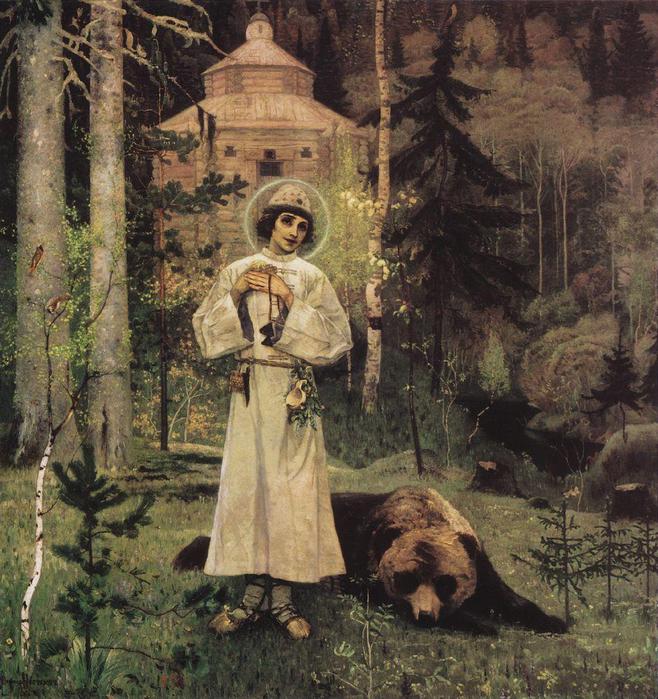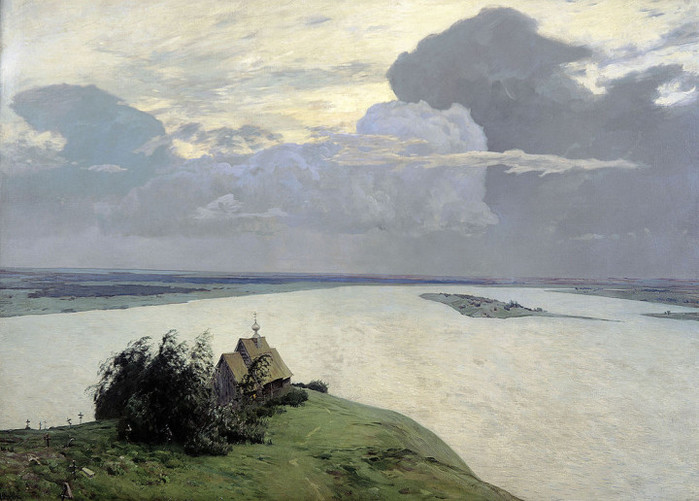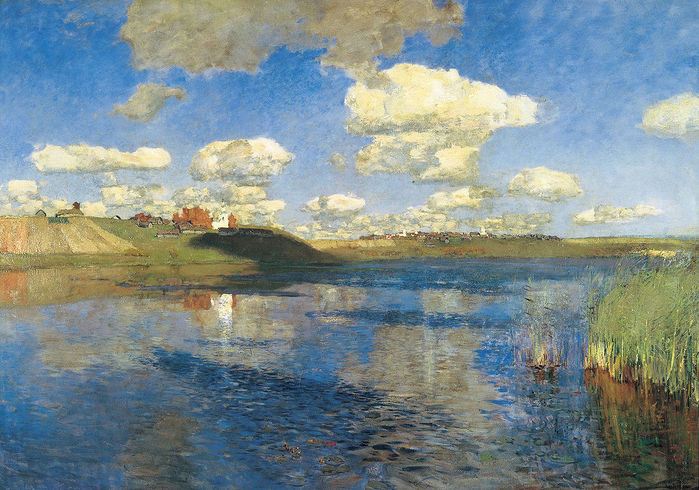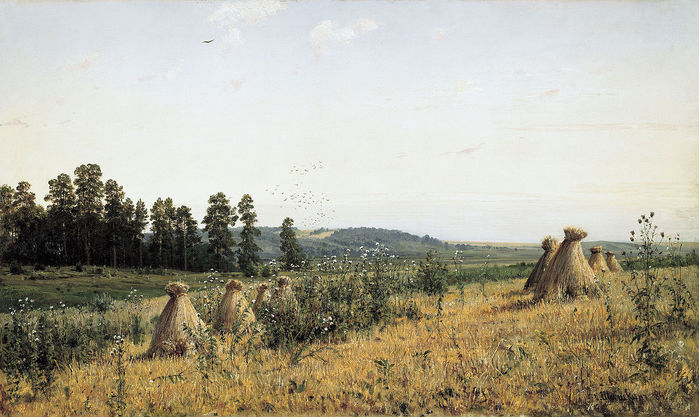"Speech is silver, silence is gold," says a Russian proverb. In Russia, there was a tradition to get away from worldly fuss with the help of silence, choosing it as obedience.

FEATURES OF RUSSIAN SILENCE
LISTENING TO GOD

Isaac Levitan - Above eternal rest
Do you need special conditions to listen, and most importantly, to hear God? Perhaps. Silence, loneliness and silence are the “three whales”, without which a silent dialogue with the Creator is impossible. No wonder John of the Ladder said that he who loves silence draws nearer to God.
Maybe that's why the holy fools close to God often chose meaningful silence as their language, which sometimes, however, was interrupted by "muddy words"? Among the monks, the vow of silence was considered one of the most difficult and especially revered.
Our pagan ancestors “gave” us silence as a special form of behavior during especially important, ritual actions. The belief that spirits could enter through an open mouth contributed to the ban not only on unnecessary talk, but also on screams, laughter and even whispering.
The one who first went out to sow in the spring was silent, those who reaped the last sheaf during the harvest were silent. The man silently brought a completed order - a coffin - to someone else's house. The woman silently kneaded the dough to bake the ceremonial bread. The one who went before sunrise for the “silent water”, endowed with a special magical, healing power, kept silent.
They were silent in case of ignorance of the answer or reacting to the tactlessness, stupidity of the speaker. If you keep silent, you will pass for a smart one, - the parents did not get tired of repeating.
THE MYSTERY OF THE RUSSIAN SOUL

Isaac Levitan - Lake. Russia
Russian silence perfectly reflects the national mentality. The situation when it is impossible to find the right words to convey your feelings is familiar to everyone and everyone.
The rich and powerful Russian language is simply not able to provide words that can convey everything that a Russian person has in his soul. Not everything in the world can be put into words. So maybe it is in silence that the mystery of the Russian soul lies?
WORD-SILVER, SILENCE-GOLD
Silence, having no linguistic means of expression, nevertheless, can be expressive. It has hundreds of "guises": it gives hope, hurts painfully, curses and pronounces judgment.
In Russian literature, silence becomes the same full-fledged hero, endowed with its own "character". The most famous, perhaps, can be considered the final scene of Pushkin's "Boris Godunov" with the remark "The people are silent." Silence here becomes a sentence for False Dmitry: very soon he will be thrown from the bell tower, and the whole Golden-domed will spit on his corpse.
INTEREST

Ivan Shishkin - Polissya
Reflection and introspection, so characteristic of Russian culture, give our silence one more feature. During the dialogue, long pauses can be taken by the interlocutors in order to be able to reflect, “digest” what was said, relishing it with something of their innermost.
Such silence does not depress, on the contrary, it gives the opportunity to be in company with oneself. Tyutchev’s “Silence” comes to mind: “There is a whole world in your soul, / Only know how to live in yourself silently ...”
MELTING THE THREAT
Russian silence is often interpreted as a threat. Silence is fraught with uncertainty, which frightens, sometimes, more than all other difficulties. In this case, it generates anxiety, destroys the formalized world, and brings discomfort. Needless to say, the silent heroes of the Russian classics are able to "catch up with horror."
So in "Ruslan and Lyudmila" a lonely daring man rides silently, but God forbid to meet him on the way: "I'm going, I'm going, I don't whistle, but when I hit, I won't let go!"
SILENCE-GESTURE

Arkhip Kuindzhi - Cloud
Silence can be accompanied by gestures or logically end with some act, action. A Russian person can be silent for a long time (here, perhaps, “endure” becomes a synonym), however, then he does something daring, violating logic, unexpected.
Masterfully demonstrates this quality of Russian silence, for example, Dostoevsky in The Brothers Karamazov: the elder Zosima silently bows to Mitya for the suffering that he must endure, and Christ, remaining silent for almost the entire chapter, bestows a merciful kiss on the Grand Inquisitor. These gestures of Dostoevsky's heroes eloquently speak of their emotional state, which is so easy for a Russian person to understand.










